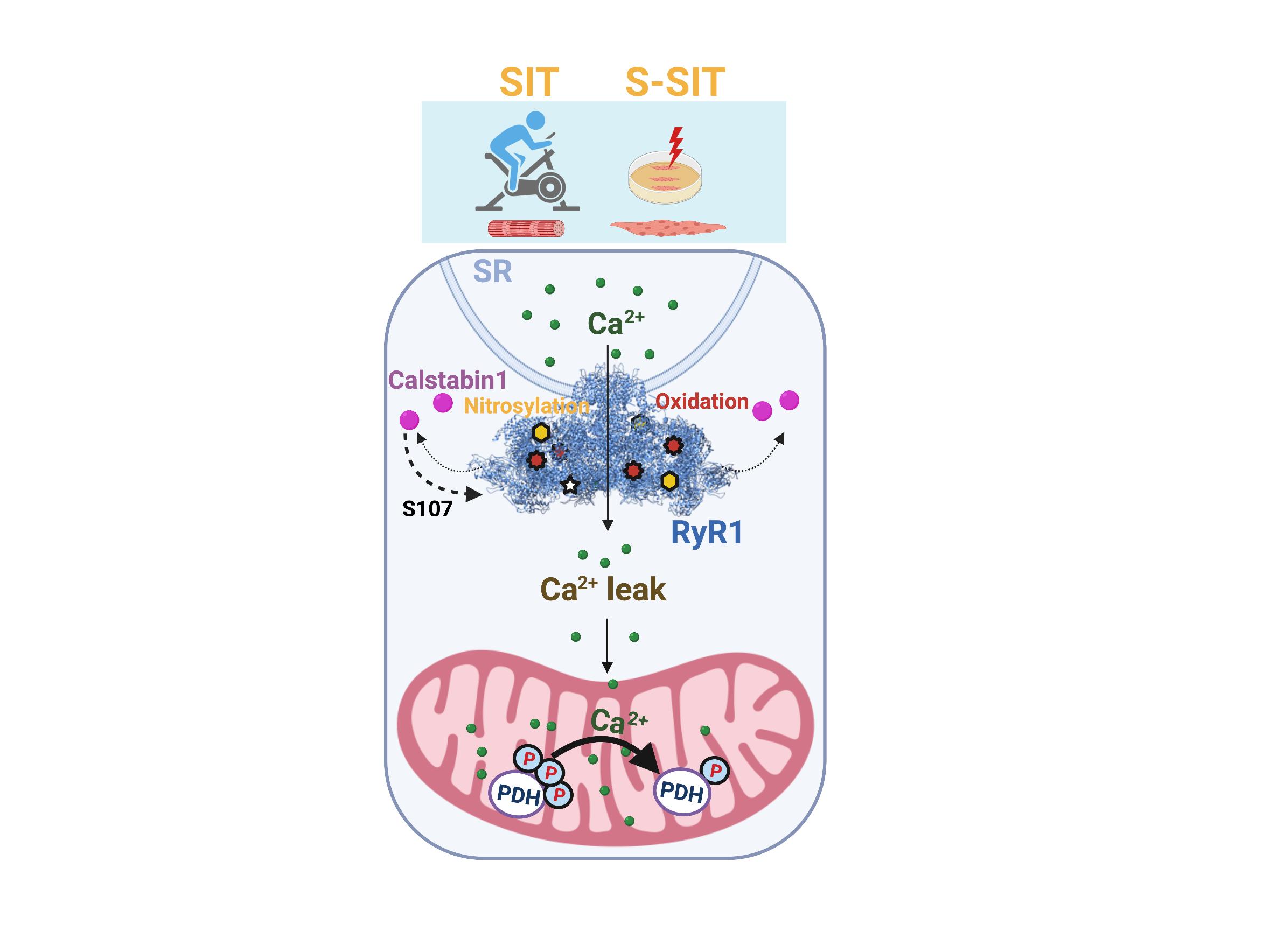An article by three ISSUL researchers published in the prestigious journal "Nature Communications"
An article by Dr Nadège Zanou, Nicolas Place and Professor Bengt Kayser from the Institute of Sports Sciences of the University of Lausanne (ISSUL), has been published in the prestigious academic journal "Nature Communications" commending research on links between training intensity and physical fitness.

Indeed, in this article, the authors answer the question why intense and short efforts such as repeated sprints improve physical fitness as well - or even better - than more prolonged, moderate intensity efforts. Dr Zanou and colleagues report that calcium leakage through an important channel for muscle contraction - the ryanodine receptor (RyR) - previously considered to be harmful, could be beneficial.
The team identified that a single session of repeated sprints, unlike a session of moderate intensity continuous exercise, induced calcium leakage through the RyR channel in the muscle cell. This leak has a particular characteristic that makes it beneficial: it is transient and the calcium is taken up by the mitochondria, the “energy powerhouses” of cells, activating key enzymes involved in metabolism. This increases cellular respiration and therefore energy production, which helps improving overall physical fitness.
The team of Drs Zanou, Place and Prof. Kayser has thus identified one of the molecular mechanisms explaining the particular effectiveness of sprint interval training, thus opening up new research perspectives. An important advantage of this type of training is that improvements can be obtained in a minimum amount of time while being particularly effective, which opens up interesting prospects for the use of this type of effort as a therapeutic means.